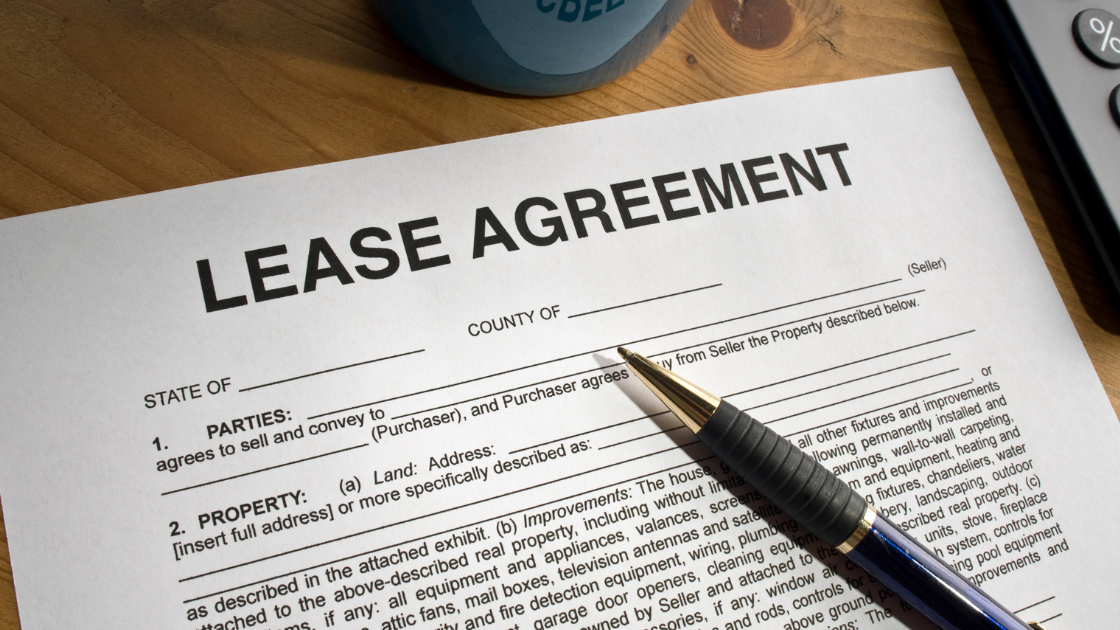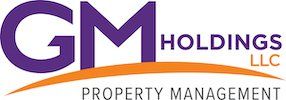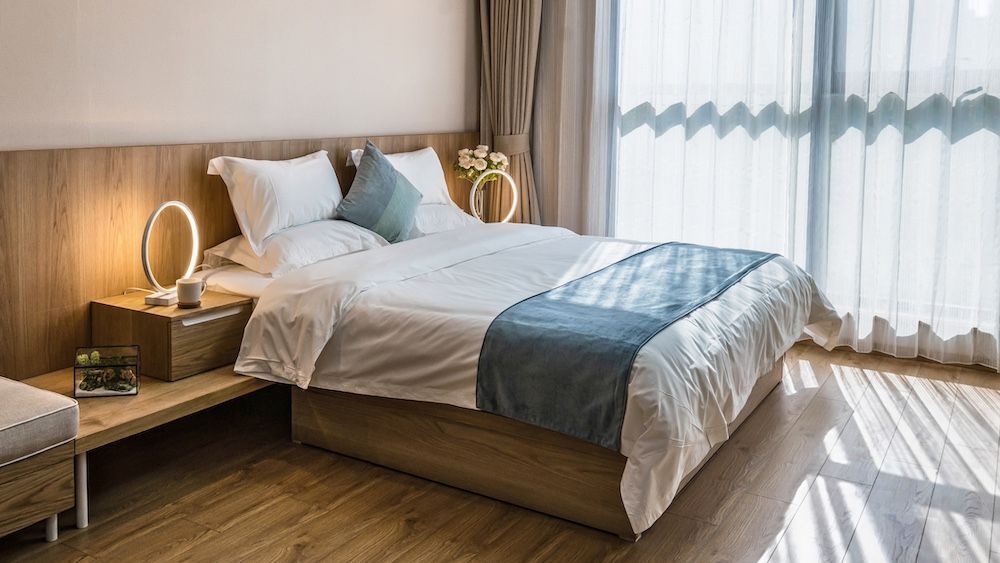An Insider’s Guide to Living in Philadelphia

Is your apartment space at a dire premium? Are you knocking over vacuum cleaners or stubbing your toe and busting your kneecaps off jagged furniture edges every second day? Are the walls closing in on you, suffocating you, as though your dwelling is shrinking with each passing minute? Take a breath, reassess, and remind yourself that your claustrophobia is only your here and now and won’t be your forevermore, especially after reading our article. And, no, we’re not saying call a realtor and start looking for a three-story colonial palace. Rather, you can make immediate changes that maximize your apartment space to its fullest extent, dramatically increasing your productivity, comfort, and—yes—your mood. All you need to do is follow our tips below, and you’ll go from living in a shoebox to a penthouse, all without leaving your rental unit. Assess Your Furniture And Adjust Accordingly Furniture isn’t always at the heart of an apartment’s issues with dwindling space. Clutter could be the primary culprit, and in many cases, it is. However, you’ve got to apply logic to your problem-solving, and logic dictates that furniture—by its nature—takes up the most space. Thus, you must explore potential alternatives exhaustively, even if you’re besotten by your decor. First and foremost, it’s time to consider multifunctional and space-saving furniture. The following options ensure your apartment's decor provides optimal comfort while preventing clutter: A storage ottoman with inner compartments will help declutter and clear space, giving you space to store clothing, linens, and other accessories. When space is limited, having a separate sofa and bed is inefficient and superfluous. Thus, if you’re a studio apartment dweller, you should invest in a sofa bed so you can enjoy a good night’s sleep without waking up feeling cramped and squeezed in—once you fold your bed back into its couch form. Similarly, a Murphy bed that folds against the wall provides additional floor space, so you can do yoga, play video games, or do whatever you please with unabashed freedom of movement. Your coffee table need not only be a welcoming surface for your beloved morning cuppas. Many options on the market have storage shelves underneath for decorative items, books, and magazines. In the same vein, consider a compact work desk with built-in cabinets, drawers, and shelves for your stationery supplies and personal documents. Other useful options to consider: Nesting tables. Modular shelves. Furniture with hidden storage. Lightweight foldable chairs. Step stool with a storage compartment. Once you’ve decided on your new furniture, assess the general flow to ensure it jives seamlessly with space optimization. Vertical Space: Every Apartment Owner’s Secret Weapon Space isn’t simply what’s in front or behind us; it’s also what’s above us. As you aim to leverage your space, don’t limit yourself to stagnant horizontal thinking; it’s time to kick things up a notch with a more vertical perspective. Additions to your apartment, like over-the-door hooks, wall-mounted shelves, and tall cabinetry (e.g., bookshelves), all utilize your up-and-down space to its fullest extent. This way, you aren’t wasting any inch your apartment offers. Are there any stairs in your apartment? If so, maximize this vertical space with step baskets and built-in drawers to store books, shoes, and other potential forms of clutter. Search For Your Hidden Gems Your space is your space. While you can undoubtedly maximize it with creative and strategic thinking, you still must play the cards you’ve been dealt. You can’t magically wave a wand and add an extra 500 square feet to your unit. None of this is to discourage you—if anything, it’s a rallying cry, a call to action. You need to delve into your apartment's labyrinth and assess it from all angles. Common “gold mines” of space are furnace rooms, the area under your bed, linen closets, and so on. You can bolster those “hidden gems” of space with carefully purchased items like under-bed storage bins, closet organizers, and portable utility carts for your furnace room. Turn Your Bathroom Into A Free-Flowing Paradise Your apartment might not be a single-standing ‘house,’ but it’s no less your home, and your home is a castle. If your apartment is your castle, your bathroom is your paradise of solitude—your most private area where you can just…relax and be you. Harnessing a restroom’s unique sense of freedom becomes much harder when grooming, hygiene, and beauty items are strewn all over the place. Purchasing a vertical shelving unit (potentially located behind your toilet) gives you an area to store all these items without them overruling your lone place of sanctuary. Also, door-mounted (or wall-mounted) hooks are a must for your wet towels, lest they pile up on the floor and rob you of precious spaciousness. Adding wall-mounted shelving units to your shower can also prevent your bathroom from being overrun by a sea of shampoos, conditioners, soaps, and face washes. Clearing the clutter in your bathroom is crucial, as it's often one of the first places you visit in the morning and your last pitstop before bed. Ensuring the space is welcoming and free-flowing will ensure each day starts and ends on the right note. Getting Down To Brass Tacks: It’s Time To Declutter This tip might be difficult for sentimental apartment owners yearning for more space, but it’s a salient piece of advice. You have to declutter. Often, people will explore every avenue of maximizing their space before getting to the nitty-gritty of getting rid of the things they don’t need. We grasp that minimizing your possessions isn’t easy. Even if you’re not sentimental, eliminating clutter is daunting, and the very notion of it is conducive to rampant procrastination. You still need to declutter, though. If you can’t do it alone, consider deputizing a friend to help you and creating an action plan together. You can also consider hiring a trash or clutter removal company to further streamline the process—many services cater to these needs. Lastly, we must stress the importance of compartmentalization. Highly cluttered apartments will take time to separate the wheat from the chaff entirely. Break it into smaller chunks and steadily eat away at the mess. The Power Of Perception: Harnessing Lighting To Maximize Apartment Space Space–or at least our perception of it—can be an optical illusion, but the magic can most certainly be palpable and real. Apply this form of delightful sorcery to maximize your apartment space with these lighting tricks: Use table lamps, string lights, and floor lights to foster an expansive and cozy atmosphere. Avoid standard overhead lighting options; they’re harsh and make your space feel smaller. Warm, soft lights lend a sense of spaciousness to your home. LED light strips under furniture and along the baseboard will provide depth, adding to the “illusion” of broader living space. Carefully placing mirrors throughout your apartment will further enhance your sense of spaciousness. With these tips, you’re more than equipped to maximize your apartment, turning your diminutive space into a sprawling fortress of comfort. Also integral to maximizing your apartment space is renting a large enough unit for your needs to begin with—an area we’re more than familiar with at GM Holdings. Contact us today to learn more about our listings throughout Philadelphia, or view them for yourself.

Philadelphia stands alone among big cities, offering renters a heady mix of cultural vibrancy and cost-efficiency. This distinctive trait is a magnet for those wishing to thrive in central hubs while keeping a tight rein on expenses. However, affordability is relative. While Philadelphia is easier on the budget than somewhere like New York, that doesn’t mean tenants are being offered free rent in the City of Brotherly Love. Depending on your financial circumstances, your job, and the part of the city in which you wish to live, things can inevitably get pricey. Let's delve into the numbers. A Philadelphia apartment costs between $1,277 and $1,887. The monthly living cost in the city—rent excluded— hovers around $1,244 for a single person, increasing to $4,459 for a family of four. While these figures appear daunting, don’t allow them to deter your search for an ideal living space. Regardless of your salary or budget, our budget-friendly tips and tricks will help you navigate the sometimes turbulent financial waters of apartment hunting in Philly. Build Your Battle Plan: Map Out Your Expenses Nobody enters an apartment hunt aiming to overspend. Everyone is looking for the ideal balance of comfortable living and affordability. Achieving this happy medium is much easier in theory than in practice. Society, as we know it, does everything in its power to get you to spend while you're trying to save. Apartment hunting is no different. Landlords are looking to turn a profit, after all. Sticking to a budget while living in a space that offers comfort and meets your standards necessitates an ongoing sense of push-pull. Thus, you must draw up your battle plan. That means mapping out apartment and living expenses, including rent, gas, utilities, credit card bills, insurance, groceries, parking, move-in costs, etc., before you start hunting. Keep these suggestions in mind as you plan your budget: Look for rental costs below 30% of your monthly income to afford other living costs. Investigate the average cost of rent across Philly neighborhoods (beyond our generalized numbers in the introduction) to see what areas best fit your price range. Be realistic. Yes, economic choices are a must, but everybody has their limits. Create an expense and budget plan you’ll actually follow, not one that’s too constrictive. Look For Ways To Cut Costs While not always the case, an apartment with less space will cost less than roomier units in the same building (or neighborhood). The above statement might seem obvious, but consider what it can mean to you as you adhere to a strict(ish) budget on your apartment hunt. First and foremost, how much space do you need? If you live alone or even with one roommate, you might be surprised to learn how little space you require to live comfortably. In this instance, living in a more extravagant neighborhood in a smaller unit might be feasible. Conversely, you can move to a slightly bigger place in a more affordable neighborhood. Or, you can live in a smaller place in a more cost-friendly neighborhood to rack up the savings. Consider, too, how apartment units on the middle floors also cost less because people pay more to live on the top and bottom levels. We’ve already seen the broad range of monthly rental costs, meaning prices can vary significantly. Spend adequate time on local apartment rental websites and platforms to get a genuine feel for the rates in your preferred neighborhoods. Also—ask friends who live in the city what they’re paying. Be tactful with your questions, but don’t be afraid to investigate. This concerns your savings and financial future; your close pals (and fellow renters) will gladly offer insights and data. Negotiate A Discount While some property managers and landlords might not be willing to budge on price, others could have some wiggle room. That said, the worst anybody ever said when asked about a discount was ‘no.’ Even if you’re unsure about the other party’s openness to negotiations, it’s a subject worth broaching. An ideal time to capitalize on a negotiation opportunity is if the unit has some issues or if the building lacks your desired amenities. Depending on the circumstances of your prospective apartment, the following tips might also help you procure discounted rates: Offer to sign an extended lease. Say you’ll prepay months in advance. Suggest a 60 or 90-day termination notice stipulation instead of 30 days. Make it clear you won’t smoke inside the unit. Come to an agreement regarding referrals (e.g., monthly reductions when you refer renters). This works in low-occupancy buildings in need of tenants. Inform your prospective property manager you won’t have any cats or dogs (even if they’re allowed in the building). Another consideration is whether you’d want to live somewhere so willing to offer a discount. Be sure you’re not actually the one getting duped. A unit can need fixing up while still being liveable, but that doesn’t mean you should accept living in a borderline uninhabitable environment to save a few bucks. Get Your Finger On The Pulse: Discover Up And Coming Neighborhoods The discount strategies discussed in the previous section raised a question everyone must ask themselves when budgeting for anything: How much quality is worth sacrificing in the name of affordability? It can be a frustrating battle to fight. Often, saving money on an apartment can feel like you must live in a perpetual state of discomfort. Mitigate this issue by thoroughly researching Philly’s apartment rental landscape and finding diamonds in the rough. To boost these efforts, streamline your search to up-and-coming neighborhoods in Philly. Why should you prioritize up-and-coming neighborhoods while on a budget? These are areas with exceptional places without being oversaturated. Get in on the ground floor before things take off and become less affordable. For instance, you’re likelier to find a cost-friendly, high-quality apartment in on-the-rise Harrowgate than in a more established spot like Rittenhouse Square. Budgeting requires thorough research and a healthy lay of the land. The best way to get a beat on the Philly rental landscape is to tap into resources (like blogs) from industry experts who can steer you in the right direction. Be Aware Of Your Rights As A Renter On your hunt for budget-friendly apartment rentals, you might encounter landlords and property managers trying to exploit your frugal inclinations. They could mistake your cost-consciousness as a weakness and an excuse to trample on your rights. Familiarize yourself with what you’re entitled to as a renter. One of those rights is habitable living circumstances. Your landlord must legally uphold specific standards regardless of what you pay monthly for your apartment. Click here to learn those standards . Conclusion: Philly Is A Haven For Budget-Conscious Apartment Hunters Who Follow Our Tips Follow the tips suggested in this article, and you’ll be surprised at how seamlessly a budget-friendly apartment falls into your lap. Philadelphia is rich with these hidden gems throughout its accessible, culturally vibrant neighborhoods. We’ll reiterate the need for patience and strategy. These cost-efficient living options won’t materialize from thin air. It will take your keen eye, developed through research and careful calculations, to land you in your desired unit. Help your cause further by contacting an industry expert like GM Holdings with your inquiries. We know the Philly apartment rental landscape like the back of our hands and are happy to provide insights to help you save on rent.

Signing a lease can be intimidating when you’ve never done it. Don’t worry, though. We—your trusted team at GM Holdings—have got you covered. Below, we’ll explain how to read an apartment lease agreement to ensure you sign one that works best for you. Rental Lease Definition A landlord and tenant sign a contract—a rental lease agreement—allowing the tenant to lease/rent the property for a defined time period and under specific conditions. Tenants are usually referred to as lessees, and landlords are called lessors in rental lease agreements for condos and apartments. Landlords and tenants have their obligations spelled out through a lease agreement, such as: Rules for lease termination. Property maintenance responsibilities. Property changes allowed by the landlord. Lease agreements often include a rider—an additional agreement meant to specify terms not in the contract. A rider could be—for instance—something about the tenant being responsible for fixing HVAC issues and the landlord being on the hook for plumbing problems. Monthly Rent Amount And Rent Term When reading your lease agreement, the first two matters of business are your monthly rent amount and rent term. Typically, lease agreements are for one year, but they can be for less or more, depending on the situation. Your monthly rent out should be clearly stated to eliminate any confusion. Late charges might also be present in the lease agreement. This will stipulate whether you’ll be stuck paying a flat rate charge or if daily interest will accumulate if you can’t keep up with the rental due dates. When monthly rent or lease terms are ambiguous, ask the landlords to clarify those terms and to put those clarifications in writing. Everything should be transparent to protect you from trickery, such as mid-lease rent increases. Leave nothing to interpretation. Security Deposit Landlords implement an upfront payment to protect their unit if a tenant leaves their property damaged or dilapidated when the lease is up. The first and last month’s rent is often the cost of a security deposit. So, if your rent is $1,500 monthly, you’ll pay $3,000 as a security deposit. Learn maximum deposit laws to ensure the landlord isn’t charging you too much. Your lease agreement should clarify scenarios where the security deposit won’t be returned when your agreement is up. For instance, if the landlord needs to hire a carpet cleaner or repaint, they might hold onto your deposit. There should be a specified deadline for the landlord to return your deposit. If it’s not initially on the lease, insist it is added to avoid any snafus. Clear Payment Instructions Generally, lease agreements state rent must be paid on the first of each month. Grace periods are offered by some landlords, though. However, grace periods don’t eliminate late fees. Instead, they allow you to not be considered past due. The lease should clarify when you’ll be stuck paying late fees. They’ll also establish how to pay your landlord each month. Other Fees Depending on the property type, you might be on the hook for any of the following fees (on top of your deposit, application fee, and monthly rent): Utilities. Parking fees. Admin fees for third-party billing services. Trash service fees. Notice fees. Rental tax fees (a percentage of monthly base rent). All fees should be clarified with dollar amounts and frequency (e.g., recurring or flat). Stipulations On Pets Some landlords are okay with pets, others aren’t. Landlords who are cool with you having a furry, four-legged roommate could charge an added pet fee, including a non-refundable deposit and monthly rent for your pet. Your lease should clarify which pets are allowed in the unit. It should also state the number of pets allowed and the fees applied to each one. When the lease says you can’t have a pet, sneaking in your cat or dog violates your terms. The same goes for adding more pets than is allowed in pet-friendly units. Termination Deadlines There will (or should) be an allotted time period you have to let your landlord know you’re moving before the end of the term. Say you have a 90-day termination notice stipulation in your lease, but only let your landlord know you’re moving with 80 days left. In this instance, you could be stuck paying additional rent. Many landlords are okay with tenants being month-to-month at the end of their term. However, getting this in writing is better than relying on words and handshakes. This way, you can’t be asked to leave out of the blue when your landlord finds someone new to rent long-term. Maintenance Terms Primarily, landlords are on the hook for major maintenance, repair, or replacement fees, such as appliances and systems failing due to wear and tear. Leases should clearly state the following: The items your landlord is responsible for fixing and maintaining. The timeline in which repairs should be made. There are laws stipulating your landlord keeping your property in liveable condition. For instance, in most states, it’s a violation for landlords to not fix air conditioners during the summer. Clear instructions on how to report maintenance issues (and to whom) should be present in your lease agreement. Final Considerations Here are a few more components that should be present in your lease: Your lease may allow you to sublet (or it may prohibit it). Be aware that you’ll be on the hook for any damage a subletter does to the unit if you go in this direction. You’ll also bear the financial brunt of missed rent payments. You may need to end your lease early. This often necessitates advance notice and a flat fee that can’t be refunded. You may run into issues in slower rental markets. Fortunately, Philly’s rental landscape is thriving, so you might find landlords more amenable here. Landlords usually draw up one lease with both names listed if you’re moving in with a roommate, meaning you share responsibility for paying rent on time and following other lease terms. Thus, you’re still on the hook if your friend doesn’t have the money for rent. Eviction is another factor to consider but requires its own article. If you have any questions on eviction (or anything else discussed in this article), contact GM Holdings today .









